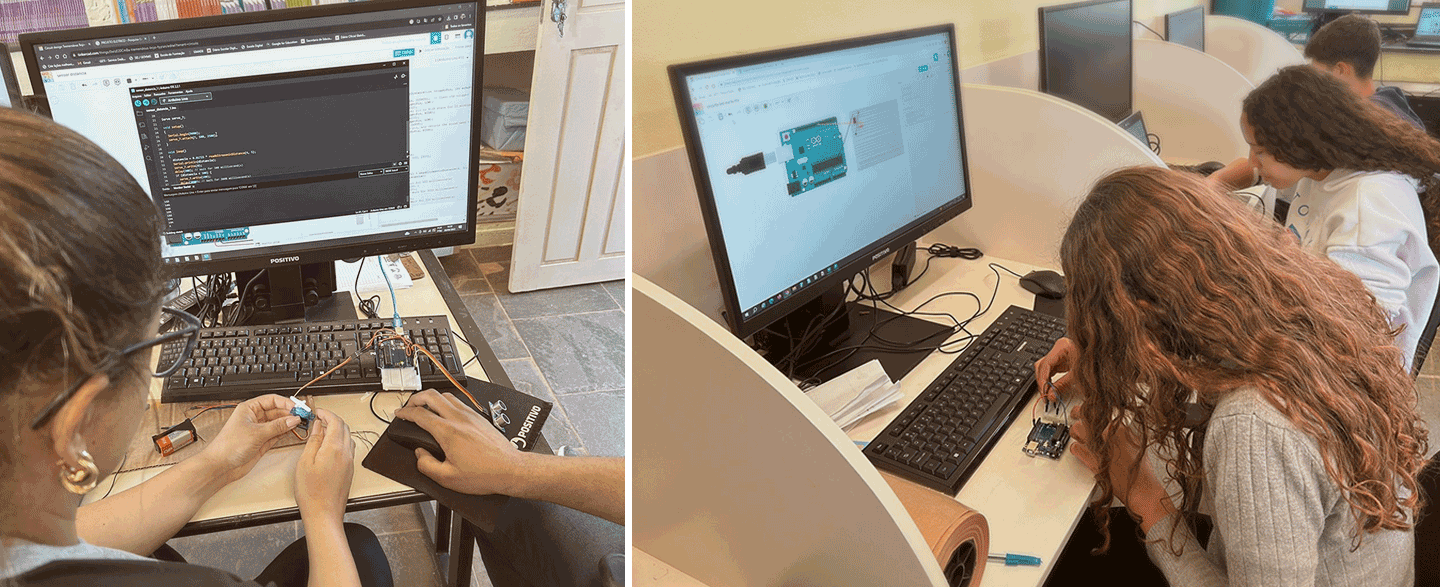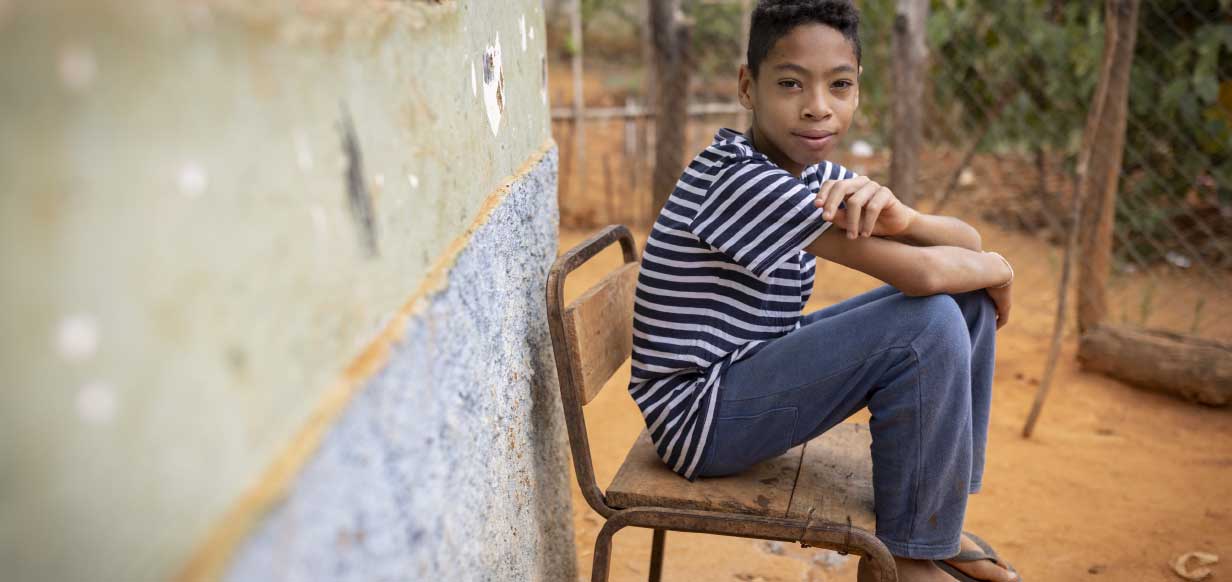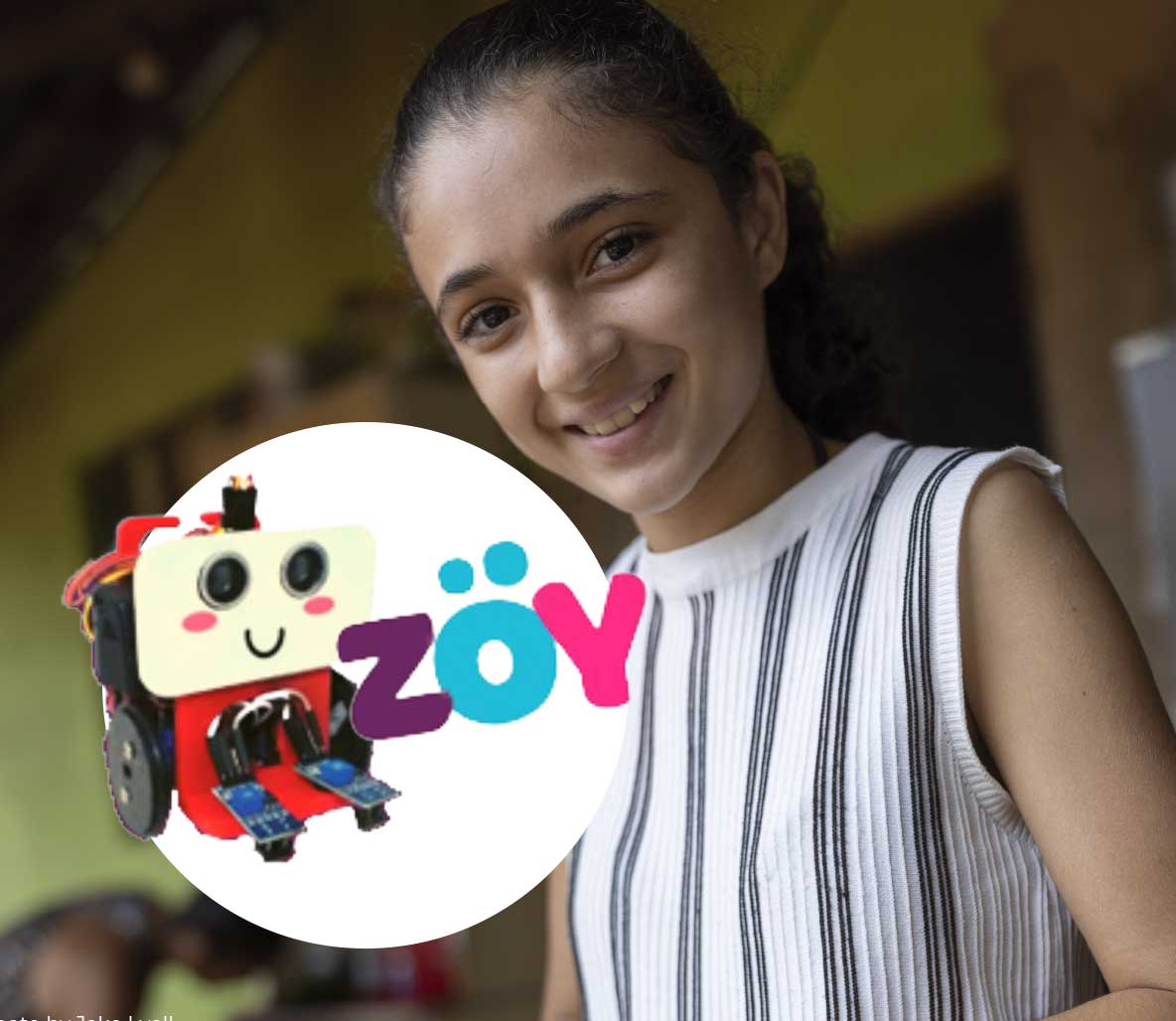Science & Robotics in Brazil
In 2023 we began a partnership with Childfund to foster STEM education through robotics education. The pilot project helped a school obtain lab equipment, provided technical support resources, and trained teachers how to continue the programs after the pilots.
Results
So far, four teachers at the school have been trained in the robotics programming as well as mathematics, biology, and physics – helping them to be better prepared to create more in depth and hands on science lessons for all children at the school. There are around 100+ students that attend the school each year, who will now also get to participate in the robotics course and benefit from the improved science lessons and classrooms. The goal of this project was to train the teachers, and a group of peer educators, for the science programming to continue on after the project timeline. 11 students participated in the initial robotics/coding training as well.

Background
Science & Robotics in Brazil in partnership with ChildFund
Every child should receive a thorough and quality education
The right to a quality education is outlined in Article 26 of the United Nations' Universal Declaration of Human Rights. However, many public schools across Brazil, especially those in rural areas, have structural and instructional limitations that prevent children from receiving a rounded education. Science is one subject that is particularly lacking – with schools having inadequate and improperly supplied classrooms and labs, as well as poor training for teachers. The National Common Curriculum Base – the country wide curriculum standard – emphasizes the importance of children being introduced to science and technology early on, but very little has been done to make sure schools are able to do so. Without early education on these subjects, it makes it very hard for children to get on a path to study these subjects at university or go on to have careers in these fields. In Veredinha, a rural community located in the southeast State of Minas Gerais, this is the reality for secondary school aged children. The Elfenworks Foundation is working to change that by helping the school with proper laboratory equipment, starting robotics programming and training teachers how to implement these programs year after year.

Project Activities
Due to the lack of government assistance in equipping schools with proper materials and spaces to teach science, this portion of rural Brazilian students' education is often lacking. Without proper early introduction to these topics, it is hard for students to have the knowledge and confidence needed to pursue these fields later in life. We are supporting Childfund in an effort to change this for over 100 current students, and many more in the future, by bringing scientific equipment and robotics programming to one rural secondary school.
This isn't our first foray into transformative technology education in Brasil. As early as 2009, we joined with Vida Jovem (Boys Hope Girls Hope Brasil) in São Paulo for an expansion of a computer learning center.



